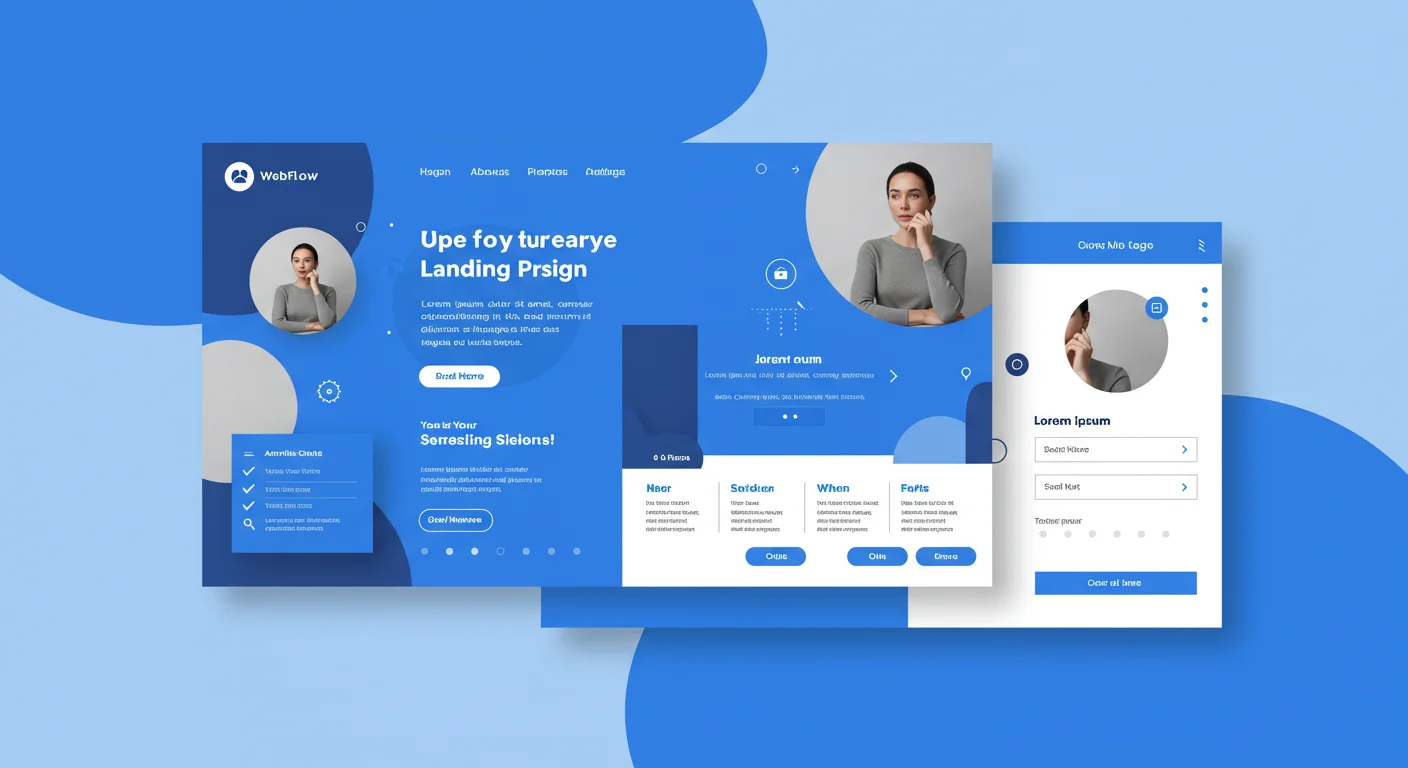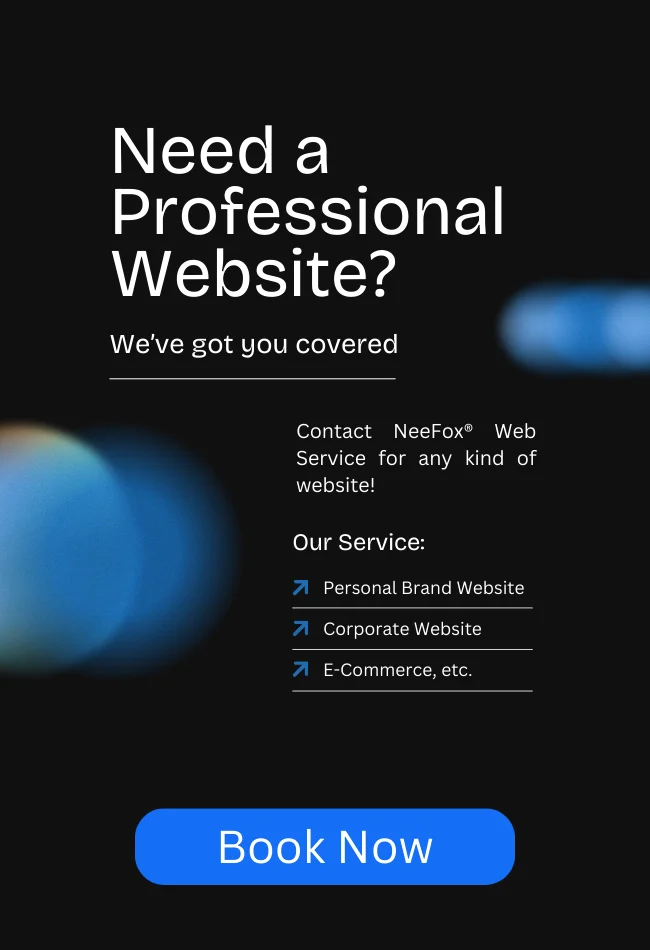For Software as a Service (SaaS) companies, a website is the cornerstone of their business. It’s not just a marketing brochure; it’s a product showcase, a lead generation machine, an onboarding portal, and often the primary interface through which users interact with the service. A SaaS website must effectively communicate complex product features, build trust, demonstrate value, and guide visitors through the conversion funnel—from curiosity to sign-up or demo request. This is where Webflow SaaS Templates become an indispensable asset.
Webflow SaaS Templates are professionally designed, pre-built Webflow projects specifically crafted for software companies. These templates are meticulously structured to highlight product features, explain complex concepts, showcase testimonials, detail pricing plans, and provide clear calls-to-action (CTAs) for trials or demos. They are inherently responsive, ensuring a flawless user experience across all devices, and are built with Webflow’s powerful CMS for easily managing features, testimonials, and a blog.
This comprehensive Webflow SaaS Template Guide will delve into the compelling reasons why choosing a template is a strategic move for SaaS businesses, the critical features to prioritize, the diverse types of templates available to suit various SaaS niches, and a step-by-step approach to customizing your chosen template to perfectly align with your unique product and brand identity. To inspire your next digital launch, we’ll also provide an extensive, curated list of over 50 top-tier Webflow SaaS templates, complete with concise descriptions and direct links.
Why Choose a Webflow SaaS Template? The Strategic Advantages
Building a high-performing SaaS website from scratch can be a monumental task, requiring significant investment in design, development, and content strategy. Webflow SaaS templates streamline this process, offering numerous benefits that accelerate your launch and optimize your online presence.
1. Accelerated Launch and Time-to-Market
The most immediate and impactful advantage is speed. A Webflow SaaS template provides a complete, pre-designed structure for your website, including all the essential pages and sections a software company needs. This allows you to bypass the initial design and development phases, enabling you to focus directly on populating your content—your product features, use cases, pricing details, and customer success stories. This accelerated workflow means you can launch a professional, high-impact SaaS website in a fraction of the time, getting your product in front of potential users faster.
2. Professional Design and Credibility Building
Webflow SaaS templates are crafted by experienced designers who understand the unique requirements of showcasing software products. This ensures themes are:
- Visually Engaging: They feature modern aesthetics, clean layouts, and thoughtful typography that immediately convey innovation, trustworthiness, and user-friendliness.
- Conversion-Optimized: Templates are built with lead generation and sign-ups in mind, often featuring prominent calls-to-action, clear value propositions, and compelling social proof sections to guide visitors towards conversion.
- Trust-Building: A polished, well-structured website instills confidence in potential users, demonstrating your commitment to quality and professionalism, which is crucial for software adoption.
3. Built-in CMS for Dynamic Content Management
A core strength of Webflow SaaS templates is their deep integration with Webflow’s powerful CMS (Content Management System).
- Dynamic Content: Templates come with pre-built CMS Collections for “Features,” “Testimonials,” “Integrations,” “Use Cases,” “Team Members,” and “Blog Posts.” This allows you to manage all your dynamic content from a user-friendly database.
- Easy Content Creation & Updates: Add new features, update pricing plans, introduce new integrations, or publish blog posts through the intuitive Webflow Editor, without ever touching the design.
- Consistent Layouts: Design a single template for your features or testimonials, and every new item you add will automatically adopt that consistent, professional layout, ensuring brand consistency across your site.
4. Inherently Responsive and Cross-Device Compatibility
In today’s multi-device world, potential users will access your website on desktops, tablets, and smartphones. Every high-quality Webflow SaaS template is built with responsive design as a core principle. Your SaaS site will automatically adapt and look impeccable on all devices, ensuring a consistent and professional browsing experience for all your visitors, regardless of screen size.
5. SEO-Friendly Foundations for Discoverability
A well-structured SaaS website is vital for attracting organic users and driving product adoption. Reputable Webflow SaaS templates are built with clean, semantic code, which is inherently beneficial for Search Engine Optimization (SEO). They often include:
- Proper heading structures (H1, H2, etc.) for features and solutions.
- Optimized image handling with alt text fields for product screenshots.
- Fast loading times, a critical ranking factor.
- Options for customizing meta titles and descriptions for each page and CMS item. This provides a strong SEO foundation, helping your SaaS product rank higher in search results for relevant keywords and attract more qualified leads.
6. Customization Without Code
Webflow’s visual editor empowers you to extensively customize your chosen SaaS template without writing a single line of code. You can easily:
- Change Colors and Fonts: Update global styles or individual elements to match your SaaS product’s brand palette and typography.
- Replace Imagery: Upload your own high-quality product screenshots, mockups, and team photos.
- Modify Layouts: Adjust sections, add new content blocks, or tweak existing grid/flexbox structures on any page.
- Tweak Interactions: Modify existing animations or add new ones to elements like feature showcases or pricing tables, enhancing the user experience.
Key Features to Look for in a Webflow SaaS Template
When selecting a Webflow SaaS template, prioritize these essential features to ensure it effectively showcases your software and drives user acquisition.
- Clear Value Proposition: The homepage should immediately convey what your SaaS product does, for whom, and what problem it solves. Look for prominent hero sections with compelling headlines and subheadings.
- Feature Showcase: Dedicated sections or pages to highlight key product features. Look for layouts that allow for clear descriptions, accompanying visuals (screenshots, videos), and benefits. Often integrated with CMS for easy management.
- Use Cases/Solutions: Sections explaining how your software solves specific problems for different industries or user types.
- Pricing Page: A well-structured, easy-to-understand pricing table with clear plan comparisons, features included in each tier, and prominent call-to-actions (e.g., “Start Free Trial,” “Request Demo”).
- Testimonials & Social Proof: Sections for customer testimonials, client logos, and potentially case studies to build trust and credibility. Often integrated with CMS.
- Integrations Page: If your SaaS integrates with other tools, a dedicated page or section to list and explain these integrations.
- FAQ Section: A well-organized FAQ section to address common user questions and reduce support inquiries.
- Blog Integration: A robust blog section with CMS integration is vital for content marketing, thought leadership, and attracting organic traffic.
- Clear Call-to-Actions (CTAs): Strategically placed CTAs throughout the site (e.g., “Sign Up,” “Try for Free,” “Request Demo,” “Learn More”) to guide visitors through the conversion funnel.
- Contact/Support Page: Easy-to-find contact information and links to support resources.
- Responsive Design: Absolutely critical. Preview the template on different device sizes to ensure optimal readability and navigation on mobile.
- Performance Optimization: A fast-loading website is paramount for user experience and SEO. Check the template’s demo for speed.
- Clean Code and Class Naming: While you won’t write code, a well-structured template with logical class naming will be easier to customize and maintain.
- Support and Documentation: For premium templates, good support and comprehensive documentation from the creator can be invaluable during customization.
- Interactive Elements/Animations: Subtle, purposeful animations (scroll reveals, feature highlights, micro-interactions) can add polish and dynamism without being distracting.
Types of Webflow SaaS Templates: Finding Your Product’s Style
Webflow’s marketplace offers a rich variety of SaaS templates, each tailored to different product types, target audiences, and brand aesthetics.
- Minimalist SaaS Templates: Prioritize clean lines, ample white space, and a focus on clarity to let your product’s features and value proposition shine without distraction. Ideal for sophisticated, user-friendly software.
- Bold & Modern SaaS Templates: Utilize strong typography, vibrant colors, and dynamic interactions to create a memorable and energetic brand presence. Suitable for innovative or disruptive tech products.
- Enterprise SaaS Templates: Feature more structured layouts, emphasis on security, scalability, and integration capabilities. Often include sections for case studies, compliance, and detailed solution explanations.
- AI/ML SaaS Templates: Incorporate modern, often abstract visuals and layouts that convey cutting-edge technology and intelligent solutions.
- Fintech SaaS Templates: Project trust, security, and precision with clean, professional designs and clear data presentation.
- Marketing/Analytics SaaS Templates: Focus on data visualization, clear results, and lead generation, often with sections for dashboards and reports.
- Productivity/Collaboration SaaS Templates: Emphasize streamlined workflows, team benefits, and ease of use with clean, intuitive designs.
- Industry-Specific SaaS Templates: Tailored for a very particular niche (e.g., healthcare SaaS, real estate SaaS), featuring relevant imagery and terminology.
How to Customize Your Webflow SaaS Template
Once you’ve selected the perfect Webflow SaaS Template, personalizing it to reflect your unique product and brand identity is a straightforward process thanks to Webflow’s intuitive visual designer.
- Clone or Purchase and Open in Webflow: If it’s a free template, clone it directly to your Webflow dashboard. For premium templates, purchase it, and it will be added to your projects. Open the project in the Webflow Designer.
- Explore the Structure: Take some time to understand how the template is built. Use the Navigator panel to see the hierarchy of elements and sections. Familiarize yourself with the CMS Collections (e.g., Features, Testimonials, Integrations, Blog Posts) and their fields.
- Update Global Styles:
- Colors: Modify global color swatches to match your SaaS product’s brand palette. This will update colors across the entire site.
- Typography: Adjust global font styles (font families, sizes, weights, line heights) for headings, body text, and other elements to align with your brand’s voice.
- Branding: Replace the placeholder logo with your own.
- Populate CMS Content:
- Go to the CMS panel. You’ll see pre-built Collections for “Features,” “Testimonials,” “Integrations,” “Use Cases,” and “Blog Posts.”
- Features: Delete the demo features and add your own product features. Fill in all the custom fields (Feature Name, Description, Icon, Screenshot).
- Testimonials: Input customer quotes, names, and company details.
- Integrations: List and describe the tools your SaaS integrates with.
- Use Cases: Detail the problems your software solves for different user segments.
- Blog Posts: If the template includes a blog, add your articles here.
- Webflow will automatically populate your dynamic pages (e.g., individual feature pages, blog posts) with your new content based on the template design.
- Customize Page Layouts:
- Homepage: Adjust hero sections, featured benefits, product showcases, social proof, and primary calls-to-action.
- Features Page: Modify the layout for displaying your product features.
- Pricing Page: Update the pricing table with your actual plans, features, and CTAs. Ensure clarity and easy comparison.
- About Us/Team Page: Personalize your company’s story and introduce your team.
- Contact/Support Page: Ensure the form is prominent and functional.
- Refine Interactions and Animations: Preview the template’s existing animations. You can modify their timing, intensity, or even change the types of animations using Webflow’s Interactions panel. Add new interactions to elements if desired, ensuring they enhance the user experience and highlight key information.
- Integrate Essential Tools:
- Analytics: Add your Google Analytics or other tracking codes to monitor website traffic and user behavior.
- CRM/Lead Management: Connect your contact/demo request forms to your CRM (e.g., HubSpot, Salesforce) or email marketing service (e.g., Mailchimp) via Webflow’s native integrations or Zapier/Make.
- Live Chat: Integrate a live chat widget for immediate user support.
- Social Media: Ensure social media links are updated.
- Sign-up/Login: Connect your “Sign Up” or “Login” buttons to your actual SaaS application’s authentication system.
- SEO Optimization: Go to your Project Settings and Page Settings for each page and CMS Collection (especially Features, Use Cases, and Blog Posts). Customize meta titles, meta descriptions, and Open Graph settings for better search engine visibility and social sharing. Ensure all product screenshots and images have descriptive alt text.
- Thorough Testing: Before publishing, rigorously test your customized SaaS website. Check all links, forms, and interactive elements. View it on various devices (desktop, tablet, mobile) and in different browsers to ensure everything looks and functions perfectly.
- Launch Your SaaS Site: Once you’re satisfied, publish your Webflow SaaS site to your custom domain. Start attracting users and growing your software business!
50+ Leading Webflow SaaS Templates for Every Software Business
Here’s an extensive, curated list of over 50 top-tier Webflow SaaS Templates. This selection aims to provide a diverse range of styles and functionalities, offering excellent starting points for various SaaS products and brand aesthetics. Each entry includes a brief description and a direct link to the template page on Webflow’s marketplace.
General & Modern SaaS Templates
These templates are versatile and can be adapted for a wide range of software products, featuring clean designs and conversion-focused layouts.
- SaaS X
- Link: https://webflow.com/templates/html/saas-x-saas-website-template
- A highly popular and versatile template for modern SaaS companies, featuring clean layouts, clear value propositions, and strong CTAs.
- Software X
- Link: https://webflow.com/templates/html/software-x-saas-website-template
- Sleek and professional, ideal for showcasing software products with detailed feature sections and compelling testimonials.
- AppFlow
- Link: https://webflow.com/templates/html/appflow-app-website-template
- Designed for mobile apps or SaaS products, featuring clean layouts, app showcases, and clear download/sign-up calls.
- Startup X
- Link: https://webflow.com/templates/html/startup-x-startup-website-template
- A comprehensive template for startups, easily adaptable for SaaS, with sections for product, team, blog, and contact.
- Elevate SaaS
- Link: https://webflow.com/templates/html/elevate-saas-website-template
- Features elegant transitions and sophisticated content displays, suitable for SaaS aiming for a premium and polished brand image.
- Nexus SaaS
- Link: https://webflow.com/templates/html/nexus-saas-website-template
- A modern SaaS template with subtle animations and a focus on clarity, adaptable for various software solutions.
- Innovate
- Link: https://webflow.com/templates/html/innovate-tech-website-template
- A forward-thinking template for innovative tech companies, featuring dynamic layouts and a focus on cutting-edge solutions.
- ProductFlow
- Link: https://webflow.com/templates/html/productflow-saas-website-template
- Designed to showcase product features and benefits with a clear, user-friendly interface.
- Solution SaaS
- Link: https://webflow.com/templates/html/solution-saas-website-template
- A clean and direct template for SaaS that provides comprehensive solutions, featuring organized feature sections and client success stories.
- Impact SaaS
- Link: https://webflow.com/templates/html/impact-saas-website-template
- A dynamic template for SaaS emphasizing their positive impact and results, featuring bold statements and compelling visuals.
AI & Data-Focused SaaS Templates
These templates incorporate modern, often abstract visuals and layouts that convey cutting-edge technology and intelligent solutions.
- AI X
- Link: https://webflow.com/templates/html/ai-x-ai-website-template
- A leading template for AI and machine learning SaaS, featuring sleek designs, data visualizations, and a focus on intelligent solutions.
- DataFlow
- Link: https://webflow.com/templates/html/dataflow-data-analytics-website-template
- Designed for data analytics or business intelligence SaaS, featuring clean data presentation and a focus on insights.
- Cognito
- Link: https://webflow.com/templates/html/cognito-ai-website-template
- A modern and intelligent template for AI-powered SaaS, emphasizing smart solutions and advanced technology.
- Analytics X
- Link: https://webflow.com/templates/html/analytics-x-analytics-website-template
- Specifically for analytics platforms, featuring dashboards, reports, and clear value propositions for data-driven insights.
- Predictive
- Link: https://webflow.com/templates/html/predictive-ai-website-template
- A forward-looking template for predictive AI or forecasting software, featuring modern designs and a focus on future insights.
Fintech & Business SaaS Templates
These templates project trust, security, and precision with clean, professional designs and clear data presentation.
- Fintech X
- Link: https://webflow.com/templates/html/fintech-x-fintech-website-template
- A sophisticated template for financial technology (Fintech) SaaS, emphasizing security, compliance, and innovative financial solutions.
- Business SaaS
- Link: https://webflow.com/templates/html/business-saas-website-template
- A professional and versatile template for B2B SaaS products, focusing on business solutions and ROI.
- CRM X
- Link: https://webflow.com/templates/html/crm-x-crm-website-template
- Designed for CRM software, featuring sections for lead management, customer relationships, and sales automation.
- Accounting SaaS
- Link: https://webflow.com/templates/html/accounting-saas-website-template
- A clean and trustworthy template for accounting or financial management software, emphasizing ease of use and accuracy.
- HR SaaS
- Link: https://webflow.com/templates/html/hr-saas-website-template
- Tailored for Human Resources software, featuring sections for employee management, payroll, and talent acquisition.
Productivity & Collaboration SaaS Templates
These templates emphasize streamlined workflows, team benefits, and ease of use with clean, intuitive designs.
- Flowbase SaaS
- Link: https://webflow.com/templates/html/flowbase-saas-website-template
- A clean and modern template, often associated with design system components, suitable for productivity or design-focused SaaS.
- Project Management SaaS
- Link: https://webflow.com/templates/html/project-management-saas-website-template
- Designed for project management tools, featuring sections for task tracking, team collaboration, and workflow automation.
- TeamFlow
- Link: https://webflow.com/templates/html/teamflow-collaboration-website-template
- A vibrant template for collaboration tools, emphasizing seamless teamwork and communication features.
- Taskly
- Link: https://webflow.com/templates/html/taskly-productivity-website-template
- A minimalist and efficient template for productivity apps, focusing on simplicity and getting things done.
- Workspace
- Link: https://webflow.com/templates/html/workspace-saas-website-template
- A professional template for comprehensive workspace or office suite software, featuring various tool integrations.
Marketing & Sales SaaS Templates
These templates focus on lead generation, conversion, and showcasing marketing/sales automation features.
- Marketing SaaS
- Link: https://webflow.com/templates/html/marketing-saas-website-template
- Specifically for marketing automation or analytics SaaS, featuring sections for lead nurturing, campaign management, and ROI.
- SalesFlow
- Link: https://webflow.com/templates/html/salesflow-sales-website-template
- Designed for sales enablement or CRM software, highlighting features for lead conversion, pipeline management, and team performance.
- SEO SaaS
- Link: https://webflow.com/templates/html/seo-saas-website-template
- Tailored for SEO tools, featuring sections for keyword research, site audits, and ranking improvements.
- AdTech
- Link: https://webflow.com/templates/html/adtech-advertising-website-template
- A modern template for advertising technology (AdTech) SaaS, featuring dynamic visuals and a focus on campaign optimization.
- Email Marketing SaaS
- Link: https://webflow.com/templates/html/email-marketing-saas-website-template
- For email marketing platforms, featuring sections for campaign creation, audience segmentation, and automation.
Industry-Specific SaaS Templates
Templates tailored for very particular SaaS niches.
- Healthcare SaaS
- Link: https://webflow.com/templates/html/healthcare-saas-website-template
- A clean and trustworthy template for health tech or medical software, emphasizing patient data security and compliance.
- EdTech SaaS
- Link: https://webflow.com/templates/html/edtech-saas-website-template
- Designed for education technology software, featuring sections for e-learning platforms, student management, and virtual classrooms.
- Real Estate SaaS
- Link: https://webflow.com/templates/html/real-estate-saas-website-template
- For real estate management software, featuring property listings, agent tools, and client portals.
- Logistics SaaS
- Link: https://webflow.com/templates/html/logistics-saas-website-template
- A robust template for logistics or supply chain management software, emphasizing efficiency and tracking.
- E-commerce SaaS
- Link: https://webflow.com/templates/html/ecommerce-saas-website-template
- For platforms supporting online stores, featuring product management, checkout flows, and sales analytics.
Creative & Design Tool SaaS Templates
Templates for software tools aimed at designers, artists, or creative professionals.
- Design Tool SaaS
- Link: https://webflow.com/templates/html/design-tool-saas-website-template
- A visually rich template for design software, featuring creative layouts and emphasis on user interface and experience.
- Portfolio SaaS
- Link: https://webflow.com/templates/html/portfolio-saas-website-template
- For platforms that help creatives build and manage their portfolios online.
- Font SaaS
- Link: https://webflow.com/templates/html/font-saas-website-template
- A specialized template for font licensing or management software, featuring typography showcases.
- 3D Tool SaaS
- Link: https://webflow.com/templates/html/3d-tool-saas-website-template
- A dynamic template for 3D modeling or rendering software, featuring immersive visuals and interactive elements.
- Video Editing SaaS
- Link: https://webflow.com/templates/html/video-editing-saas-website-template
- For cloud-based video editing platforms, featuring sections for features, collaboration, and output quality.
Miscellaneous & Unique SaaS Templates
- Cybersecurity SaaS
- Link: https://webflow.com/templates/html/cybersecurity-saas-website-template
- A secure and professional template for cybersecurity software, emphasizing trust, protection, and expert solutions.
- Legal SaaS
- Link: https://webflow.com/templates/html/legal-saas-website-template
- A formal and trustworthy template for legal tech or compliance software.
- Gaming SaaS
- Link: [https://www.google.com/search?q=https://webflow.com/templates/html/gaming-saas-website-template)
- A dynamic and visually engaging template for gaming-related software (e.g., game development tools, streaming platforms).
- Travel SaaS
- Link: https://webflow.com/templates/html/travel-saas-website-template
- For travel booking platforms or travel management software.
- FoodTech SaaS
- Link: https://webflow.com/templates/html/foodtech-saas-website-template
- A modern template for software in the food and beverage industry.
- Construction SaaS
- Link: https://webflow.com/templates/html/construction-saas-website-template
- A robust template for construction management or project planning software.
- Event Management SaaS
- Link: https://webflow.com/templates/html/event-management-saas-website-template
- Designed for event planning or ticketing software.
- Nonprofit SaaS
- Link: https://webflow.com/templates/html/nonprofit-saas-website-template
- A compassionate template for software serving the nonprofit sector.
- Fitness SaaS
- Link: https://webflow.com/templates/html/fitness-saas-website-template
- For fitness tracking, personal training, or gym management software.
- Education LMS
- Link: https://webflow.com/templates/html/education-lms-website-template
- While specifically for Learning Management Systems, it’s a great starting point for any educational SaaS.
- E-learning SaaS
- Link: https://webflow.com/templates/html/e-learning-saas-website-template
- A modern template for online course platforms or educational software.
Final Thoughts
Your SaaS website is a critical asset, directly impacting user acquisition, brand perception, and business growth. Webflow SaaS Templates offer a powerful shortcut to launching a professional, high-converting online presence without compromising on design quality or functionality. By providing a meticulously crafted foundation, these templates free you to focus on what matters most: showcasing your product’s value and attracting your ideal users.
With Webflow’s intuitive visual designer and robust CMS, you can easily customize every aspect of your chosen template, from brand colors and typography to detailed feature explanations and compelling customer testimonials. This empowers you to create a unique and effective digital storefront that drives sign-ups, demo requests, and ultimately, the success of your software business.
Ready to launch your SaaS product with a stunning and effective website? Contact us for a free consultation to discuss your specific needs and explore how Webflow SaaS templates can help you achieve your business goals!










![_iPhone Screen Size & Resolution All iPhone Display Sizes Guide [2025] iPhone Screen Size & Resolution | All iPhone Display Sizes Guide [2025]](https://neefox.com/wp-content/uploads/elementor/thumbs/iPhone-Screen-Size-Resolution-All-iPhone-Display-Sizes-Guide-2025-rgmkelp2h92gpnmfqsmjdkahpn01tobstqqhbrcigg.png)

